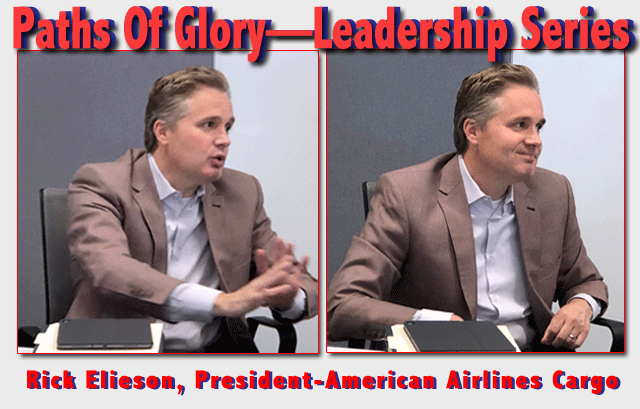 |
“While you are reading a
book, it is also reading you,” purportedly words once spoken
by Hans Christian Anderson have come to mind.
Take the case of Richard Elieson,
who has served as President of American Airlines Cargo for the past
three and a half years.
We have spoken often about things,
usually at a trade show, or even as we did recently during a short
interview/meeting inside American Cargo’s new Penthouse Suite
of offices at the gleaming new Skyview 8 headquarters building in
Fort Worth, Texas.
Usually it’s a battery of questions
and answers as the interview goes on.
But in this case what you are about
to read addresses only one question.
I asked Rick “What are the most
important attributes of a leader?”
His answer was direct, to the point
and voluminous enough to serve as a course outline for advanced
air cargo management.
Rarely, as a reporter, do we experience
this sort of volume and depth and fervor emerge from a business
interview.
We are moved, and at the same time
inspired by these words and thoughts, to continue our pursuit of
the leadership series in FlyingTypers.
What are the most important
attributes of a leader?
For many years I have made a practice
of trying to identify leadership qualities in the people around
me. I don’t mean this in a judgmental or critical way, but
I’ve looked for habits and practices that I might emulate
and from which I will grow. I don’t want to have to learn
everything first-hand through my own trial and error process. I’ve
found that if you’re willing to look, there are wonderful
teachers all around (even if unwittingly) and there are a great
many leadership attributes that I have come to admire. Attributes
like passion, authenticity, humility and a vision rank high on my
list. Of course, so does good communication skills and good managerial
skills. I think of leadership and management as quite distinct,
but I appreciate the need for both and don’t believe either
can be neglected if an organization is to thrive.
Over the years, I have been fortunate
to associate with effective leaders with differing levels of those
qualities. None of them perfect individuals, but always striving
to become better themselves – add that to my list –
and desirous to lift and make those around them better. This means
I’ve had a long list of mentors in my life.
As the American Airlines Cargo team,
we emphasize five leadership principles in particular. We don’t
generally talk about them in any particular order (one isn’t
more important than another), but in my mind, there is a logical
sequence or momentum to them.
First Is Caring
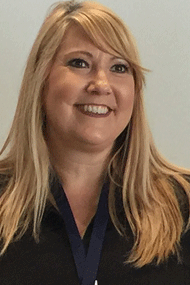 Specifically,
caring about your fellow team members. And more to the point, helping
them to feel cared for. It isn’t enough for me to sit quietly
and think kind thoughts about my colleagues. Potential energy needs
to be put into motion in order to unlock its value. One of the ways
we do this at American is through a recognition platform that Jennifer
Stelling, our Director of Marketing and Engagement has championed
for use across our team. It isn’t top down, but rather peer-to-peer.
With a little modification, Jennifer came up with a way for us to
use it for contracted employees too. Specifically,
caring about your fellow team members. And more to the point, helping
them to feel cared for. It isn’t enough for me to sit quietly
and think kind thoughts about my colleagues. Potential energy needs
to be put into motion in order to unlock its value. One of the ways
we do this at American is through a recognition platform that Jennifer
Stelling, our Director of Marketing and Engagement has championed
for use across our team. It isn’t top down, but rather peer-to-peer.
With a little modification, Jennifer came up with a way for us to
use it for contracted employees too.
Recently when I wanted to thank some
team members for their dedication and for the long hours they are
putting in, she encouraged me to record a personalized video on
my phone for each person and text it to them individually, rather
than sending an email.
Eleven videos that took me about one
minute each to record. It may seem small, but we try very hard to
be inclusive and treat third party employees the same as any other
team member. That is the kind of thoughtful approach to caring that
is infectious and I’m proud to say permeates and perpetuates
a family-like culture of caring among our team.
Second Is Collaboration
When you like your colleagues and
truly value their input, you are more likely to include them and
collaborate. So, if you are aligned in your cause (your purpose
and your understanding of its relative urgency), you care about
each other and you appreciate the contribution of your fellow team
members, then it quite naturally turns into great collaboration.
None of us have a monopoly on the best ideas. I don’t know
if I’ve ever had the best idea in the room. But I’ve
contributed to some brilliant ones, and I’ve implemented many.
I can say with confidence that the proudest accomplishments in my
career, crowning achievements if you will, are ideas that originated
with someone else.
Many examples immediately spring to
mind.
One thing that social science and
design thinking has taught us is that ideas get better when you
share them. Roger Samways, our VP of Global Sales, is a fantastic
collaborator. It isn’t because his ideas are terrible! But
he genuinely enjoys including others in his ideation and decision-making
processes. The result is not only that initiatives become more thoughtful
and robust, but they are more successful because all of the people
responsible for implementation become involved and invested along
the way. I know American is not the only gigantic company where
this is helpful – it must be true at forwarders and other
carriers too. The internal support we get from across the broader
American Airlines, the talent we’re able to attract, and the
opportunities that we uncover are dramatically improved because
of Roger’s strength as a collaborator.
Third Is Development
We can always improve, right? However,
the effort to do so often gets sidelined because we’re too
busy doing our day job. When my father was my age, he went back
to school to earn a PhD. He already had degrees from Caltech and
Harvard. What was more education going to do for him? I have grown
up with his example of lifelong learning. Not to get existential
on you, but I am convinced that when you stop growing, you start
dying. One of the interesting things about deepening or broadening
your knowledge is that it not only makes you smarter, but when you
flex your mind in new ways or examine old problems in a new context
– and then share what you’re learning – it improves
the way in which you interact with others.
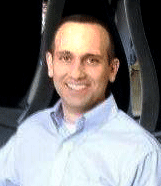 Great leaders do more than continue
to learn and improve, they also recognize that core to their responsibility
is helping others do the same. Recently, Chris Isaac, our Managing
Director of Revenue Management, introduced a learning platform to
the team. He had seen it elsewhere and championed its implementation
and adoption. With a click, it gives you the ability to share interesting
articles, videos or podcast with others on the team. If you follow
Chris on this social-learning platform, you can see what he’s
reading, watching and learning. I can see that he recently read
a Harvard Business Review article about writing more thoughtful
out-of-office messages, watched a TED talk about innovation, took
a class on disrupting everyday biases, and read an email from Elon
Musk describing his thoughts about management philosophy. Extend
that across a team of thousands, each sharing their thoughts and
insights about what they’re learning and you’ll find
a rich experience that can be consumed in bite sized chunks whenever
you’re ready.
Great leaders do more than continue
to learn and improve, they also recognize that core to their responsibility
is helping others do the same. Recently, Chris Isaac, our Managing
Director of Revenue Management, introduced a learning platform to
the team. He had seen it elsewhere and championed its implementation
and adoption. With a click, it gives you the ability to share interesting
articles, videos or podcast with others on the team. If you follow
Chris on this social-learning platform, you can see what he’s
reading, watching and learning. I can see that he recently read
a Harvard Business Review article about writing more thoughtful
out-of-office messages, watched a TED talk about innovation, took
a class on disrupting everyday biases, and read an email from Elon
Musk describing his thoughts about management philosophy. Extend
that across a team of thousands, each sharing their thoughts and
insights about what they’re learning and you’ll find
a rich experience that can be consumed in bite sized chunks whenever
you’re ready.
The Fourth Is Results
Results matter, and getting stuff
done is a hallmark of great leadership. We have a lot of cool initiatives
underway at American Airlines Cargo, but none of them matter if
you are not living up to your commitments of today. If you haven’t
seen the Academy Award winning documentary Free Solo, about the
ascent of El Capitan in Yosemite National Park, go watch it and
then come back and finish reading this. I spent a week with the
director a few years ago, so I am assuredly biased, but I love the
film. At one stage, Alex Honnold (the object and star of the film)
is practicing an insane move to get across the most difficult portion
of the climb. With the smallest of toe holds, he has to push up
against a small indention just large enough for this thumb, and
then trade places with his other thumb while he kicks his leg out
to find another hold. I should mention that he does all of this
1500 feet off the ground without a rope. When watching this portion
of the film, you have to remind yourself to breath.
What I find most interesting, is that
while it is the most difficult section, it is not the portion of
the climb that he practiced the most. Maybe it is like the wise
golfer who knows to spend more time practicing her putting, but
the portion of the climb that Alex focused on the most was a section
at the beginning, only 500 feet into the climb. The lesson is that
if you fall off the mountain at 500 feet you are just as dead as
if you fall at 1500 feet.
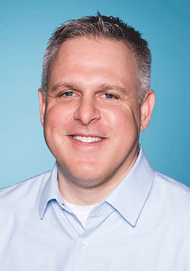 You
cannot afford to be so distracted by what lies ahead that you neglect
the problem at hand – that only ends in disaster. You must
master the challenges in front of you right now. I have two leaders
who exemplify this trait. David Vance, our VP of Operations, and
Tim Paliganoff, (right) the Director of Customer Care. You
cannot afford to be so distracted by what lies ahead that you neglect
the problem at hand – that only ends in disaster. You must
master the challenges in front of you right now. I have two leaders
who exemplify this trait. David Vance, our VP of Operations, and
Tim Paliganoff, (right) the Director of Customer Care.
There is an inseparable relationship
between how hard we work for something and how much we value it.
The harder we work, the more we care about it. And the more we care
about something, the harder we are willing to work for it. Said
another way, you care most about the people you serve the most.
It may sound like circular logic,
but I prefer to think of it as a virtuous cycle. I don’t know
where the cycle begins, but I know how much these two teams care
about our customers and I see how hard they work day-after-day,
without know what tomorrow will bring, to meet our customers’
needs.
The result is that our operational
performance is on a record setting rampage. We have quite literally,
never operated as well as we are right now. How? It is an accumulation
of the aforementioned qualities: Caring, Collaboration and Development.
They come together to work as a team with a collective ownership
to GSD (get stuff done). It is inspiring for the entire team at
a time when there are so many other distractions and demands on
their energy to see the fundamentals so well cared for. We take
immense pride in the operational achievements.
The Final Attribute Is Future
I was a Boy Scout, so being prepared
is deeply engrained in my psyche. The comforting news is that I
don’t have to predict the future in order to prepare for it.
Once upon a time, the companies with the smartest people or the
greatest access to resources were the most successful. In the modern
economy, that simply isn’t true anymore. Start-ups appear
out of seemingly nowhere and with next to nothing disrupt established
markets all the time. The most resilient
companies, the enduring companies that are successful over the long
haul, are the companies that are the most adaptive and the most
attuned to customer needs. Technology is at the core, but it isn’t
the focus. Technology is an enabler, while people and process are
– must be – at the center of your long-term strategy.
 Jessica
Tyler is the VP of Strategy and Development at American Airlines
Cargo and she has an incredible passion for people. I watched her
present to a group of executives earlier this week, including the
CEO, CIO, CFO, etc. about a massive technology project. In actuality,
she spoke very little about the technology and a great deal about
the way in which we are going to affect people’s lives; team
members and customers alike. With responsibility for long term platform
and business model development as well as the execution of today’s
technology imperatives, she remains steadfastly focused on people. Jessica
Tyler is the VP of Strategy and Development at American Airlines
Cargo and she has an incredible passion for people. I watched her
present to a group of executives earlier this week, including the
CEO, CIO, CFO, etc. about a massive technology project. In actuality,
she spoke very little about the technology and a great deal about
the way in which we are going to affect people’s lives; team
members and customers alike. With responsibility for long term platform
and business model development as well as the execution of today’s
technology imperatives, she remains steadfastly focused on people.
That focus is what is defining our
future and the way in which we will evolve and adapt to the needs
of the market. No project, however futuristic, remains abstract
when you are able to see it in those terms.
That is a very long explanation and
may appear self-indulgent, but I hoped to avoid platitudes and show
you rather than tell you about the attributes that I admire and
which we are working hard to incorporate into our company culture.
The truth is that each of these leaders exhibit all five of the
leadership attributes mentioned, but I described them in the way
I did because I want to make one final point about diversity.
We are at our best when we recognize,
appreciate and leverage the unique strengths that each of us brings
to the table as opposed to trying to accomplish feats alone or to
force others to conform. People have always liked me better after
meeting my wife, they think I’m funnier after seeing me with
my friends, and they only see how capable I am when they get to
know my team.
However you choose to slice it, we
are better together, and we are happier when we are focused on the
happiness of others.
I love being part of such a great
team.
Geoffrey
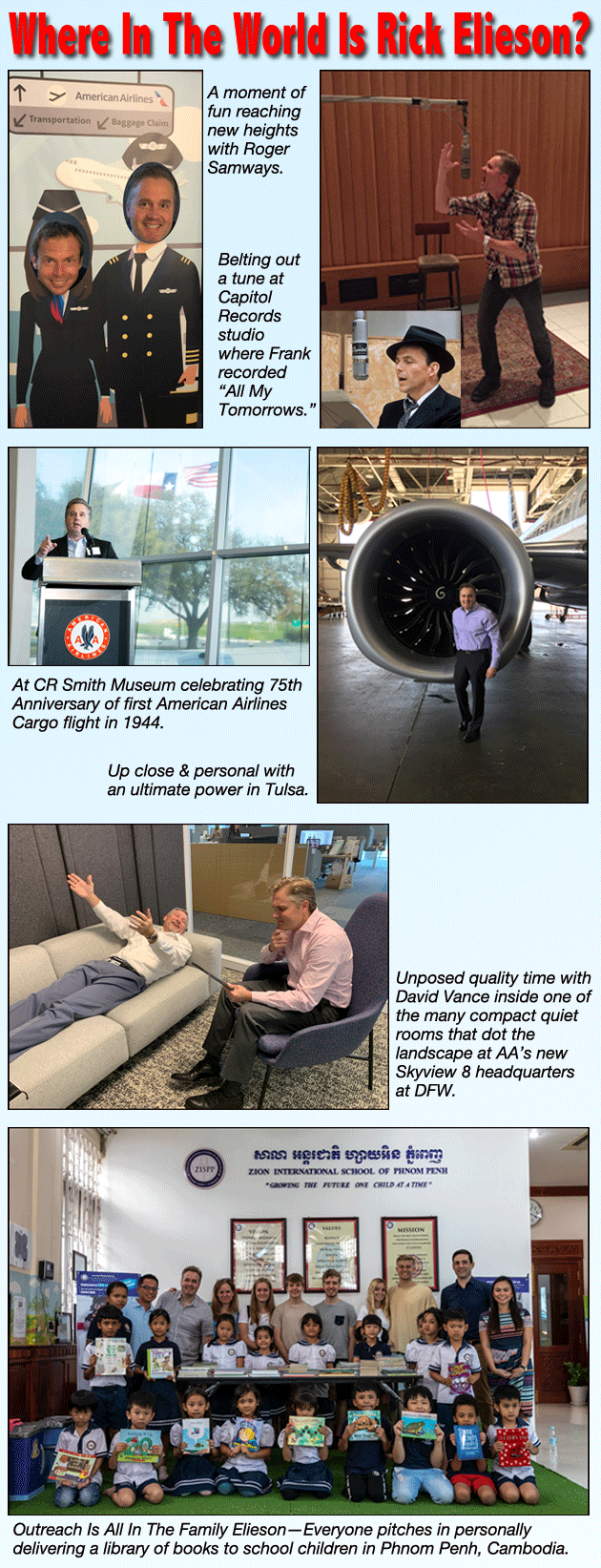 |
|




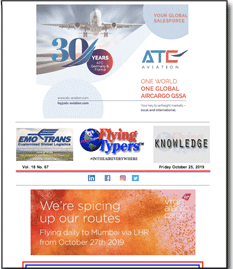 Vol.
18 No. 67
Vol.
18 No. 67